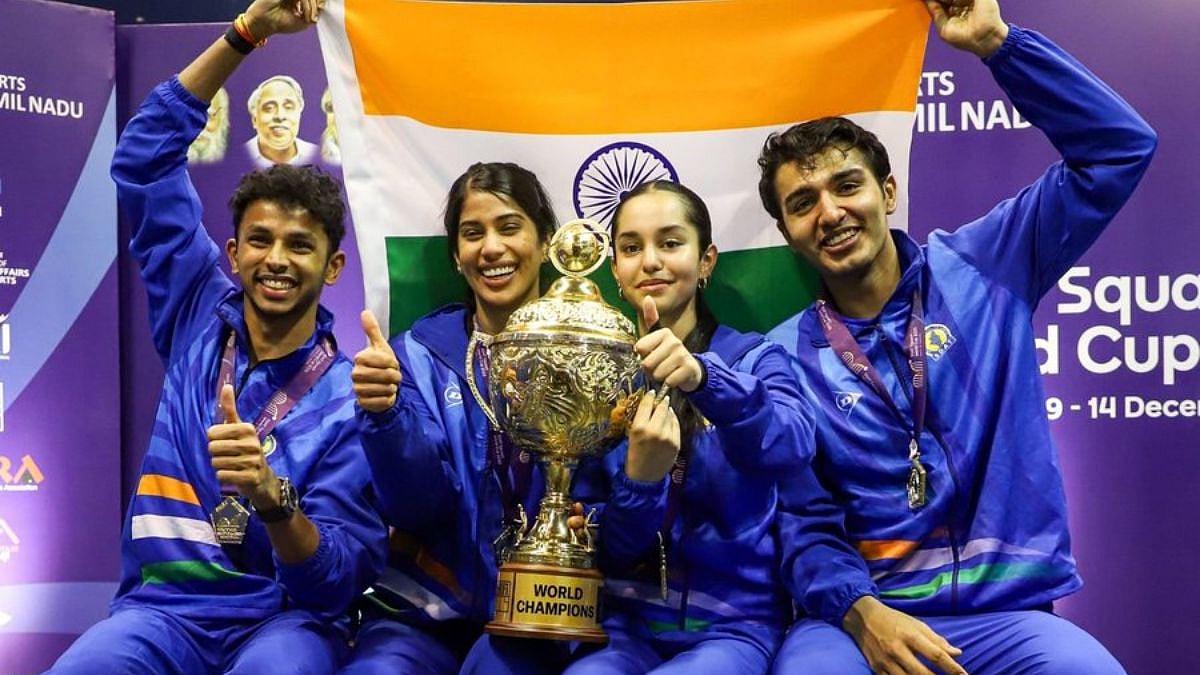Modern India is addicted to ultra-processed junk foods loaded with refined sugar, trans-fat, preservatives, artificial colours, synthetic flavours, and other additives that are directly associated with diet-related non-communicable diseases. Ninety-two per cent of adolescents in India are eating ultra-processed foods regularly. To address this unhealthy eating pattern, it's important to get back to good old cooking habits and make nutritious meals for yourself and your family.
Whole grains
Grains are the major sources of energy in Indian diets and mostly we rely on white polished rice. Therefore, add variety to your grain stock by including nutritious whole grains like millets, brown rice, amaranth, dalia, oats, barley and quinoa. Whole grains are a powerhouse of fibre, B vitamins, and essential minerals such as magnesium, iron and manganese.

Eating whole grains is found to be heart-protective and a better choice compared to white rice or refined wheat flour to control blood glucose levels or obesity. Additionally, whole grains can easily be stored for months at room temperature. Buying whole grains in bulk is a smarter choice.
Pulses and legumes
Indians relish all forms of dals. A variety of pulses and legumes are the next on the list after whole grains — a must in all Indian kitchens. Some nutritious, fibre-enriched legumes and pulses are chickpea, chana, rajma, kidney beans, lima beans, Bengal gram, moong, lentil, among others. Along with raw, minimally-polished legumes, canned beans are a long-lasting option for preparing healthy meals. Beans, whether canned or dried, can be stocked at room temperature (68°F/20°C) for two to five years. Lack of moisture inhibits microbial growth in dried beans. Legumes and pulses are abundant sources of protein, fibre, minerals and B vitamins and can be used to prepare soup, chilla, salads.
Nuts and seeds
This food group is not common in Indian households and is used occasionally as toppings for sweet dishes like kheer, laddus, chikkis, etc. If you are not eating nuts and seeds regularly, add these to your grocery list today. A fistful of nuts and seeds offers an array of nutrients such as healthy fats, fibre, protein, micronutrients.

Almonds, cashew, pistachio, walnuts, peanuts, pumpkin seeds, flaxseed, chia seeds and sunflower seeds are some great choices for your pantry. Use this food group in salads, oatmeal, yoghurt and thick soup. Roasted, unsalted mixed nuts and seeds are tasty snacks in your daily diet.
Healthy cooking oils
Choice of cooking oil varies across India depending on the cuisine and availability. Industrially processed refined seed oils derived from sunflower, cottonseed, rapeseed, corn, soybean are high in omega 6 and often contain artificial stabilizers, antioxidants, etc. that make these oils unhealthy for long-term consumption . Coconut oil, ghee, groundnut oil, olive oil are some great pantry staples to stock in bulk.
Probiotics and fermented foods
Most Indian households eat homemade curd as part of their daily diet. Curd is also considered as the probiotic food in Indian cuisine. Moreover, Indian kitchens stock a variety of pickles that are long-lasting and found to bear multiple health benefits like improving digestion, reducing inflammation by nurturing health-friendly gut microbiota.

Frozen fruits and vegetables
Fresh fruits and vegetables are regular in Indian kitchens. However, these are highly perishable and can’t be stored in the fridge for long. Frozen fruits and vegetables retain similar nutritional value as fresh produce and can be used in preparing nutritious soups, curries, salads, smoothies. That said, eat colourful vegetables, leafy green vegetables and low-sugar fruits every day. Make these musts on your daily shopping list. Sweet potatoes, apples, beets, cabbage, bottle gourd, ridge gourd, carrots, and citrus fruits are a few fruits and vegetables that can be stocked either in the fridge or open kitchen cabinets for long.
Eggs
A versatile food, that can be enjoyed at any time of the day. Eggs can be eaten boiled, poached, scrambled, fried, in curries — you name it! They are packed with high-quality protein and almost all micronutrients that are essential to our health.

Hence, eggs are popularly known as ‘nature’s multivitamin’. Eggs can be stored for three to five weeks, so buying a tray is budget-friendly. Try to get pasture-raised eggs if possible for maximum benefit.
Yoghurt
In Indian households, yoghurt is not a staple. Nonetheless, yoghurt is becoming more popular in recent years due to its nutritional benefits. Adding yoghurt to soups or smoothies can make them thicker and creamier. You can make a wonderful fruit salad with yoghurt, fresh fruit, nuts and seeds. You can also make exotic fish and meat curries with yoghurt. Daily consumption of full-fat yoghurt may be protective against heart diseases and accumulation of belly fat, which is associated with many non-communicable diseases, including diabetes.

Other essentials in Indian cuisine include fresh fish, meat, poultry, spices and dried herbs. To eat healthy, begin by stocking your pantry with nutritious staples. With these staples at hand, you can prepare fresh, home-cooked meals every day.
(Subhasree Ray is a Doctoral Scholar, Clinical and Public Health Nutritionist, Certified Diabetes Educator. She can be followed on her Twitter @DrSubhasree)











